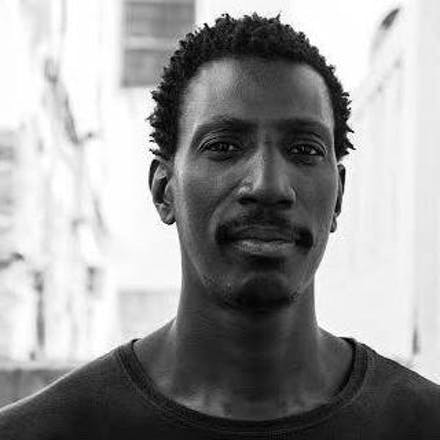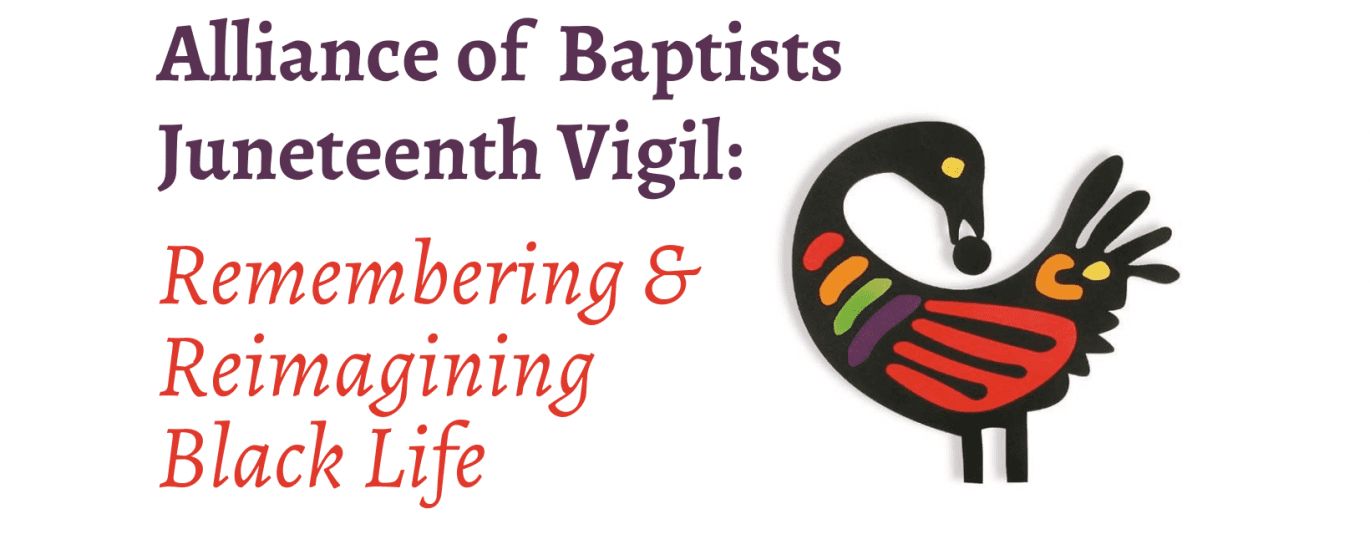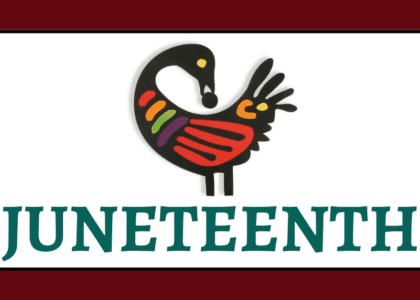This sermon was given by Ronilso Pacheco at the annual Juneteenth vigil held on June 18, 2021.
What I am going to talk about is in the Gospel of Mark, chapter 6, verses 27 to 44. Because of time, I will not read the passage. But I think this won’t be a problem because we are talking about two passages among the best known in the New Testament: I am referring to the death of John the Baptist and Jesus feeding the crowds in the miracle of multiplication. I want to share this reflection briefly as an invitation to a passage. We will make a crossing from fear to hope, passing through four scenarios.
The first scenario is the context of the death of John the Baptist, beheaded. This is the scene of FEAR. The disciples find themselves facing a power that is so great that it is able to decide about the life and death of anyone. A power that has such indifference to life that it is capable of trivializing death. This is how oppressive powers do. They ignore the cries for life. And a supremacist power likes to kill symbols, the men and women who inspire us, as was the case with John the Baptist. So, it was with Paul Bogle, in Jamaica, Luther King and Malcom X in US, Steve Biko in South Africa, Marielle Franco and Paulinho Guajajara in Brazil, and many others. This power continues today. We live with a supremacist power that continues to plot the decapitation of our symbols and our motivation to fight. The disciples go through fear, as many black people go through fear in this country. Fear arises every time another black body falls.
At that moment, the disciples go through a kind of emptiness. This is the scene of HELPLESSNESS. The disciples feel totally unprotected, aware of their own weakness and powerlessness before a power that can kill at any moment. A power that holds the social structure in its hands. At every moment, the disciples are thinking: “yes, they can slaughter us and cut our heads off”. Every moment, a young black man is saying, “yes, they can lynch us again, hang our bodies from a tree, shoot us, put their knee on our necks until we can’t breathe anymore. In Ferguson, Minneapolis, New York, Rio de Janeiro, London, Salvador, São Paulo or Recife, the voices are still shouting in the desert, amid the helplessness.
However here the transition happens. The disciples come out of the “great night” of John the Baptist’s death and find the welcome of Jesus. This is the scene of CARE AND REST. You see, it all begins with the hospitality. Before any action, Jesus calls the disciples to withdraw to a deserted place. Jesus calls the disciples and the people to the shore. Jesus offers Rest. Black people need hospitality and rest. It is impossible to be a space to worship God if it is not a space where people are welcomed and loved. Before being places that encourage struggle, our communities need to be places of welcome and rest. Black bodies are crossing the city daily to deliver our online purchases from Amazon, feed us with fast food, meet the deadline for buildings that are built with black, and Latino sweat and blood, or speeding through the city in app cars and cabs to get us somewhere. No rest in menial jobs that continue to exploit black bodies and pay less than fifteen dollars an hour. Yet the commanding place is still white. Spaces of power are still white. So, the crowd follows Jesus because he offers rest and abundant life. Everyone wants to live. Here the resistance begins.
The disciples and the crowd meet in a new place, and it is there that the miracle takes place. For some, this miracle is the multiplication of loaves and fishes. But probably, the great miracle was not the multiplied food, but the learning of sharing. The capitalist, neoliberal, colonial, and diabolical individualism of the disciples is disrupted by Jesus. The disciples saw themselves as a group that had the privilege of being intimate with Jesus. So, they thought that if there was little food, it should be shared only among them. By saying “give them something to eat” Jesus destroys the disciples’ sense of privilege. That is what Jesus would do. Jesus destroys the white privilege that has taken possession of the wealth, the best seats in universities, churches, organizations, company. That privilege took possession of the resources and said to the blacks in US, but not only, in Brazil, in the Caribbean as well: “get out of here and go find something to eat.”
By multiplying solidarity and sharing, Jesus renewed hope and encouraged resistance. This call is present today to challenge white supremacy and the privileged so that they learn to share rights and freedom. This is the scene of HOPE. Here is the passage our community must take: out of fear, across the desert of helplessness towards of Welcome and Rest, to arrive at a society transformed by the perseverance of hope. Our sister Audre Lorde told us that “each of us is here now because in one way or another we share a commitment to language and to the power of language, and to the reclaiming of that language which has been made to work against us.”
Thus, the diaspora, this passage, is at the same time dispersion and reunion. The dispersion of an oppressed people in different places and contexts, but it will be the reunion of this same people with new ways of living in freedom and equality. We will take the language of power; we will destroy the supremacy and racism of our grammar in the name of the language of love and rebellion. We will cross over led and inspired by the powerful love of God, the uncontainable generosity of Jesus, and the transgressive imagination of the divine Ruah.

Ronilso Pacheco- Brazilian, theologian and activist, is assistant pastor at the Baptist Community of São Gonçalo, Rio de Janeiro. He is the creator of the movement of public classes that took place on the streets of Rio de Janeiro between 2014-2016, called “The Gospel and Civil Disobedience.” He lives in New York, where he is pursuing a Master’s in Theology at Union Theological Seminary with a concentration in Religion and Society. He is the author of “Occupy, Resist, Subvert: Church and theology in times of racism, violence and oppression” (Novos Diálogos, 2016), “Black Theology: the anti-racist breath of the Spirit” (Novos Diálogos, 2019).




Recent Comments